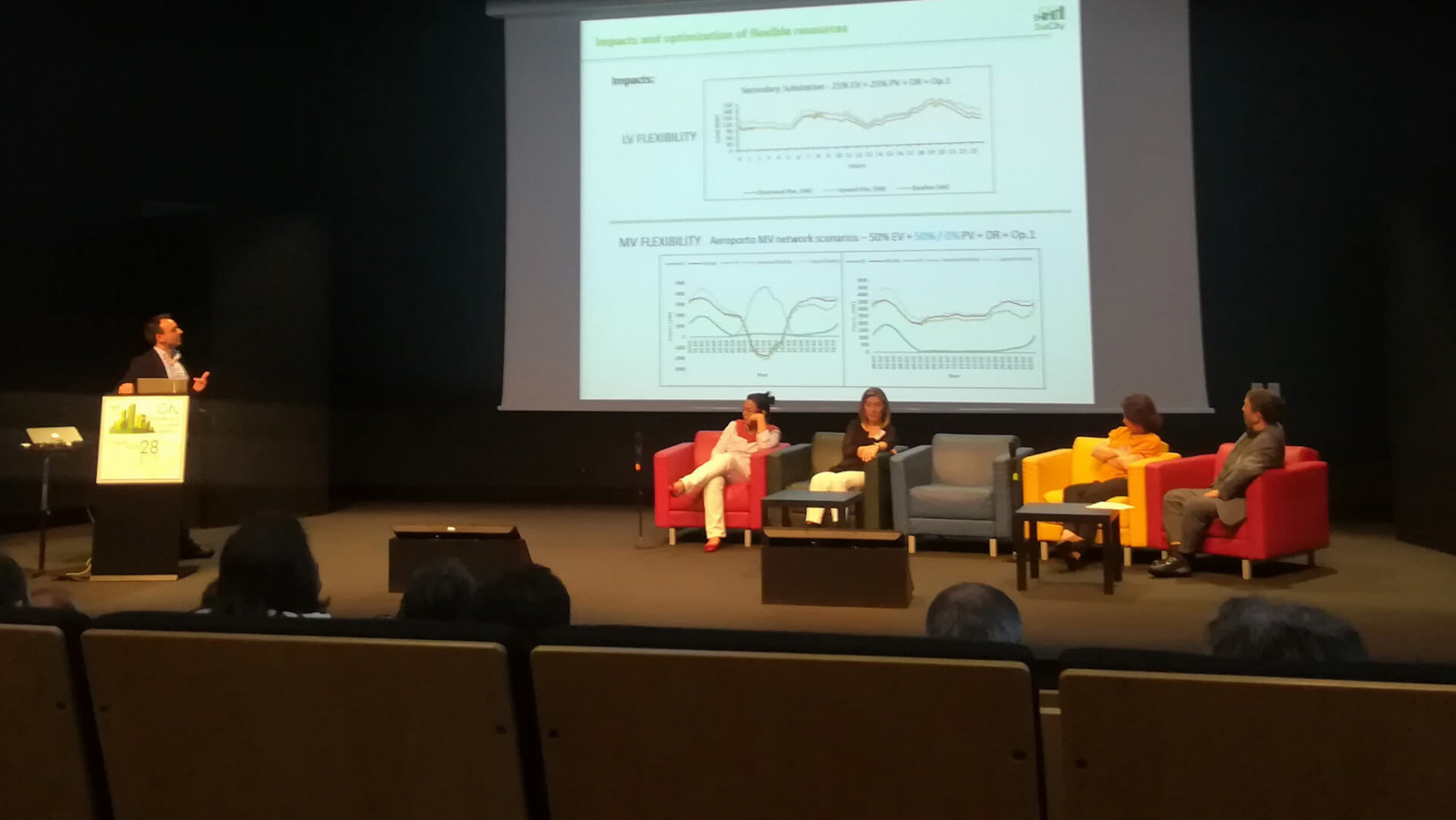The SUSCITY project coordinated by INESC TEC came to an end
The SUSCITY project, coordinated by INESC TEC, which was focused on developing and integrating new tools and services to promote the resource efficiency in order to improve urban decision makers with minimum environmental impacts, come to an end.
17th July 2018
With a budget of more than €2 million, SUSCITY was a project funded by the Foundation for Science and Technology (FCT) under the MIT Portugal programme and developed by a consortium composed of INESC TEC, IST-ID, the Faculty of Sciences of the University of Lisbon, IDMEC, LNEG, the University of Coimbra, the University of Minho, ADENE, EDP Distribuição, MIT, Lisbon City Hall (CML), IBM, iTds, R&D Nester and Novabase.
The closure seminar of the project, in which the main results of SUSCITY were presented, took place on 28 June at the Pavilion of Knowledge in Lisbon.
Manuel Matos, coordinator of INESC TEC’s Centre for Power and Energy Systems (CPES) and leading researcher of the project, should be highlighted as he was responsible for the opening and closing sessions of the event. The event was also attended by Paulo Ferrão, president of FCT, Luís Tiago Ferreira of EDP Distribuição, Maribel Santos of the University of Minho, Camila Garcia of the University of Lisbon, Cláudia Sousa of ADENE, Filipe Joel Soares researcher of CPES and António Gomes Martins from the University of Coimbra.
The SUSCITY project emerged due to the need to create energy efficient solutions for the cities. Nowadays, the cities are responsible for 60% to 80 % of the global energy consumption, emitting 50% to 60% of the global greenhouse gases, and most of the energy used in cities comes from buildings. The lack of understanding about the electricity consumption dynamics in time and space stimulated the development of an urban energy control panel as a tool for energy management used in cities.
The SUSCITY project represents a breakthrough in the science of urban systems modeling and data representation supported by urban “big data” collection and processing.
Starting in January of 2015, the project SUSCITY is now coming to an end.
The researchers mentioned in this news piece are associated with INESC TEC and UP-FEUP.


